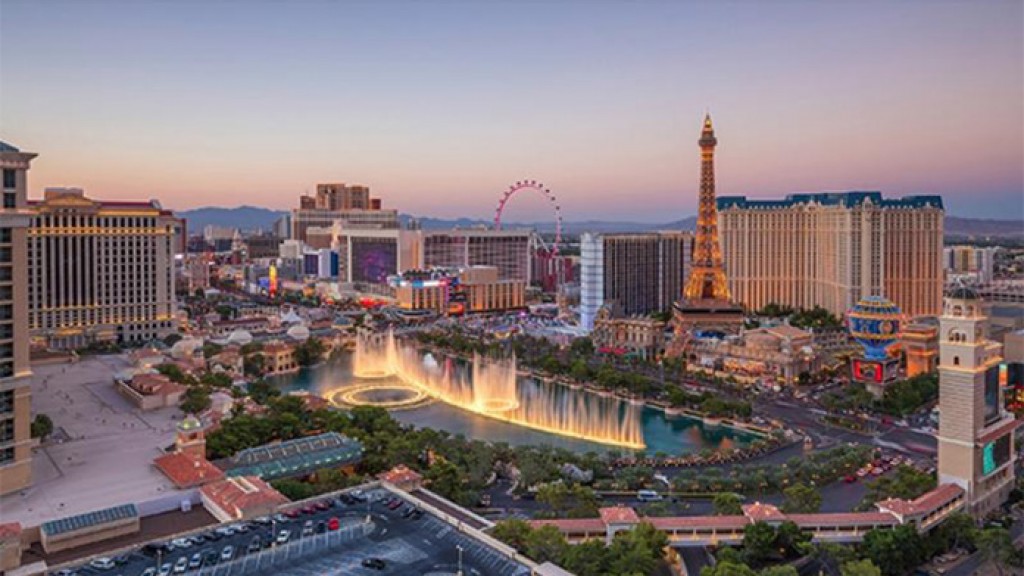Big changes churn through Nevada casino giants
Tuesday 26 de March 2019 / 13:27
2 minutos de lectura
(United States).- Four major Strip casino companies are facing varying degrees of uncertainty that have caught the attention of gaming industry followers.

Two companies – MGM Resorts International and Caesars Entertainment – are dealing with issues related to investment community backlash. Steve Wynn’s sudden exit a year ago from the casino company he founded was the first chapter in what turned out to be a series of shake-ups in the leadership of the Las Vegas casino industry.
Four major Strip casino companies – encompassing 23 of the boulevard’s most recognized resorts and 63 percent of its hotel rooms – are facing varying degrees of uncertainty that have caught the attention of gaming industry followers.
MGM, which operates 10 Strip developments, is undergoing a cost-reduction and margin-improvement plan that includes US$ 100 million in reduced labor spending and has led to the departure of key executives, including the company’s long-tenured chief financial officer, Dan D’Arrigo, and Scott Sibella, the president of the MGM Grand Las Vegas.
Caesars, which has nine properties on or near the Strip, has a new minority owner – billionaire corporate raider Carl Icahn, who now owns almost 18 percent of the company through more than US$ 1.023 billion in stock acquisitions. Icahn, who controls three seats on the company’s board, wants Caesars to be sold or to merge with another casino operator. Reno-based Eldorado Resorts has surfaced as a potential partner.
For Las Vegas Sands and Wynn Resorts, the issues center on the absences of their visionary founders who have driven the Strip’s multi-billion-dollar remake since the late 1980s.
Las Vegas Sands was forced to reveal this month that Sheldon Adelson, the company’s 85-year-old founder and largest shareholder, has been away from the office since December while undergoing treatment for non-Hodgkins lymphoma. A Sands spokesman said Adelson is still performing his duties as chairman and CEO, although the day-to-day operations – which include the Venetian and Palazzo – are being overseen by company President Rob Goldstein and Chief Financial Officer (and Adelson’s son-in-law) Patrick Dumont.
The changes at the four conglomerates are happening as visitor sentiment has soured over added costs to a stay in Las Vegas. Three of the companies – MGM Resorts, Caesars and Wynn – now charge guests for parking, although other factors, such as spending (parking is free at Wynn if visitors spend more than $50 on property) along with perks and mobility between sister resorts can reduce costs.
Visitors are also charged extra fees or daily resort fees to cover services such as using the spa, gym or WiFi Internet connection. Resort fees range between $30 and $50 per day on top of room rates and any parking fees.
UNLV’s Associate Vice Provost for Faculty Affairs David Schwartz, who had served as director of the school’s Center for Gaming Research before his promotion last month, said the gaming industry as a whole is facing challenges it has not faced before: that of being a mature business industry rather than a new and growing one.
“It may be that new leadership, or at least new ideas, is necessary to face these challenges,” Schwartz said. “To me, the MGM and Caesars issues seem more like symptoms than causes.”
Mixed views
To some observers, the storylines add up to the most significant shakeup on the Strip since the Great Recession a decade ago. Others don’t see it that way. “There are definite changes afoot at the major operators,” Schwartz said, although he sees a difference from shifts that came out of the recession. “The structure of the industry doesn’t seem to be changing, as much as the faces around the table.”
Nevada Gaming Commission Chairman Tony Alamo Jr., who has been on the panel since 2008 and chairman since 2014, said the changes taking place at several gaming companies “do not rise to a red alert level.”
He said each company’s issues or endeavors have to be viewed individually. What’s taking place within the Strip’s corporate offices is nowhere near the catastrophe experienced during the recession in 2008 and 2009, when annual Strip gaming revenues tumbled 10 percent and 9 percent respectively.
The Gaming Control Board, the industry’s full-time regulatory state agency, studies public companies through its corporate securities division. While not getting into specifics, Control Board Chairwoman Sandra Douglass Morgan said the division has been following the events.
As for Wynn and Sands, Bo Bernhard, executive director of the International Gaming Institute at UNLV said questions will always arise when there is a management change from a long-time corporate operator who is considered the visionary. Using sports terminology, Bernhard said there will be questions about “depth on the bench.”
From a Wall Street perspective, SunTrust Bank gaming analyst Barry Jonas said the current matters facing the four companies signal a “changing of the guard at the top.” The gaming industry as a whole, he added, has been re-evaluating itself internally for several years.
MGM and Caesars are companies that grew largely through development and consolidation beginning in the mid-1990s.
Jonas said the predominance of regional gaming markets led to the rise of the real estate investment trust industry in 2013, which separated property ownership from resort management. MGM owns 70 percent of MGM Growth Properties and VICI Properties was spun off from Caesars following the company’s 30-month bankruptcy reorganization. Combined, more than two dozen MGM and Caesars properties are owned and operated under the REIT structure.
“This model hasn’t been through an extreme recession yet,” Jonas said. In conclusion, each situation is unique. Changes at the four companies have been headline grabbing - and distinctive.
Categoría:Casino
País: United States
Event
iGaming Club Conference Cancun
24 de November 2025
Levon Nikoghosyan Confirms iGaming Cancun’s Success and Future LATAM Expansion
(Cancun, SoloAzar Exclusive).- The vibrant energy of iGaming Cancun has set the tone for a new chapter in the Latin American iGaming industry. Levon Nikoghosyan, CEO and Co-Founder of AffPapa and iGaming Club, shared his enthusiasm for the event’s debut in Mexico, highlighting its impact on the regional market and the company’s ambitious plans for the future.
Thursday 04 Dec 2025 / 12:00
iGaming Club Cancún 2025 Concludes Successfully with Strong Connections in Its First LatAm Edition
(Cancun, SoloAzar Exclusive).- iGaming Club Cancún 2025 came to a close last night with a comprehensive experience of conferences, networking, and the AffPapa iGaming Awards LATAM gala, consolidating itself as a unique space for operators, affiliates, and providers in the region.
Thursday 27 Nov 2025 / 12:00
iGaming Club Cancún 2025: Affiliates, Operators, and Innovation Take Center Stage on Final Day
(Cancun, SoloAzar Exclusive).- The second and final day of iGaming Club Cancún 2025 unfolds today, bringing together operators, affiliates, and select B2B providers in a unique networking and conference environment that highlights the evolving dynamics of the Latin American iGaming market.
Wednesday 26 Nov 2025 / 12:00
SUSCRIBIRSE
Para suscribirse a nuestro newsletter, complete sus datos
Reciba todo el contenido más reciente en su correo electrónico varias veces al mes.




















